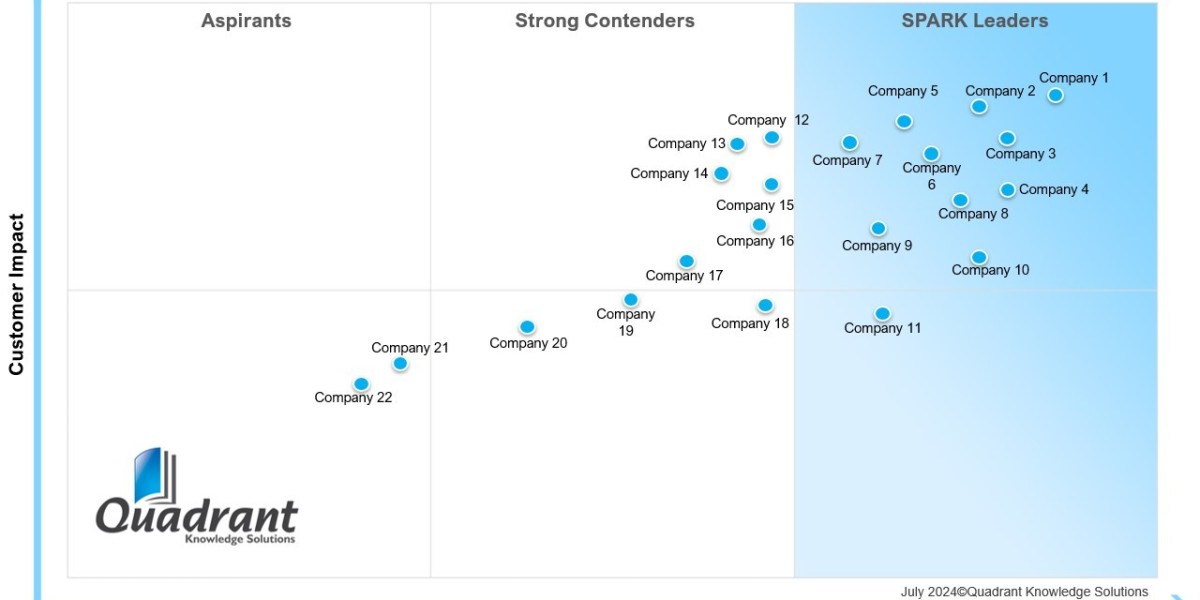The SPARK Matrix Zero Trust Network Security market is undergoing a major transformation as cyberthreats grow more complex and organizations move toward hybrid, cloud-first environments. Recent research from QKS Group highlights the rising importance of Zero Trust Network Security (ZTNS) and the disruptive innovations redefining global cybersecurity. As the report outlines, the SPARK Matrix Zero Trust Network Security evaluation has become a crucial benchmark for businesses seeking clarity amid an expanding and competitive vendor ecosystem.
In today’s digital-first world, traditional perimeter-based security models are no longer enough. Zero Trust flips the script with a powerful principle: never trust—always verify. Instead of assuming that activity inside the network is safe, ZTNS constantly authenticates every user, device, and connection. This modern approach allows enterprises to eliminate blind spots, reduce breach risks, and build a dynamic, adaptive security posture that works across distributed teams.
Why Zero Trust Is Becoming a Global Standard
One of the standout observations from QKS Group’s research is the rapid adoption of granular, identity-driven security controls. ZTNS solutions enforce strict “least privilege” access, ensuring every user receives only the minimum level of access required. Further, ZTNS enables deep micro-segmentation, isolating network zones to prevent attackers from moving laterally, even when they slip past initial defenses.
In an era where cybercriminals use sophisticated techniques and automated attack tools, this layered defense strategy is essential. Organizations adopting Zero Trust gain the ability to:
- Authenticate every access request in real time
- Reduce insider and outsider threat exposure
- Limit attack surfaces across hybrid environments
- Enhance security for remote and mobile workers
These benefits aren’t just reactive—they enable proactive, continuous protection.
What the SPARK Matrix Reveals About the Competitive Landscape
The SPARK Matrix Zero Trust Network Security evaluation by QKS Group offers a comprehensive look at the global ZTNS vendor landscape. It compares market leaders based on solution excellence, innovation, customer impact, and global presence.
The analysis covers leading vendors such as:
- Akamai, Appgate, Certes Networks, Checkpoint, Cisco, Citrix
- Forcepoint, Fortinet, HPE Aruba, InstaSafe, Ivanti, JAMF
- Netskope, Palo Alto Networks, Proofpoint, Twingate, Unisys
- Versa Networks, VMware, Xage Security, Zentera, Zscaler
Each vendor brings its own unique strengths—cloud-native architectures, identity-first access models, sophisticated analytics, or unified security platforms. The SPARK Matrix helps decision-makers evaluate how these vendors differentiate themselves in a rapidly evolving market.
AI & ML: Powering the Next Generation of Zero Trust
A major trend highlighted in the QKS Group report is the continued integration of artificial intelligence (AI) and machine learning (ML) into ZTNS platforms. These advanced technologies are rapidly becoming the backbone of modern security operations.
AI and ML enhance ZTNS by:
- Detecting unusual user or device behavior
- Improving accuracy of threat predictions
- Enforcing dynamic, real-time security policies
- Reducing manual intervention for IT teams
With cyberattacks becoming more automated and intelligent, the deployment of AI-driven Zero Trust solutions ensures security remains agile and responsive.
Momentum Driven by Cloud, Compliance, and Hybrid Work
A surge in cloud migration, hybrid work adoption, and stringent regulatory requirements is driving the expansion of the ZTNS market. Organizations in finance, healthcare, government, and critical infrastructure are adopting Zero Trust frameworks to safeguard sensitive data and meet compliance standards.
Zero Trust Network Security solutions offer seamless, secure access to applications across on-premises and cloud environments—without the limitations of legacy VPNs. This means:
- Better user experience
- Faster, more secure remote access
- Reduced operational complexity
- Greater resilience against emerging threats
As digital transformation accelerates, Zero Trust is quickly becoming embedded into long-term cybersecurity strategies.
Looking forward, the ZTNS market is set for continued growth as vendors invest heavily in automation, unified platforms, and AI-driven risk analysis. Businesses prioritizing Zero Trust will be better positioned to handle evolving cyber risks, protect distributed workforces, and strengthen digital infrastructure.
The insights from QKS Group, paired with the SPARK Matrix Zero Trust Network Security evaluation, provide organizations with a critical, strategic roadmap for selecting the right vendor and implementing Zero Trust effectively.
Conclusion
Zero Trust Network Security is more than a trend—it is the future of enterprise cybersecurity. As highlighted in QKS Group’s latest findings and reinforced by the SPARK Matrix Zero Trust Network Security assessment, Zero Trust frameworks deliver the resilience, intelligence, and adaptability organizations need to defend against modern threats. Companies that adopt Zero Trust today will be the ones best equipped to thrive securely in tomorrow’s digital landscape.
#ZeroTrust #Cybersecurity #ZTNS #NetworkSecurity #SPARKMatrix



